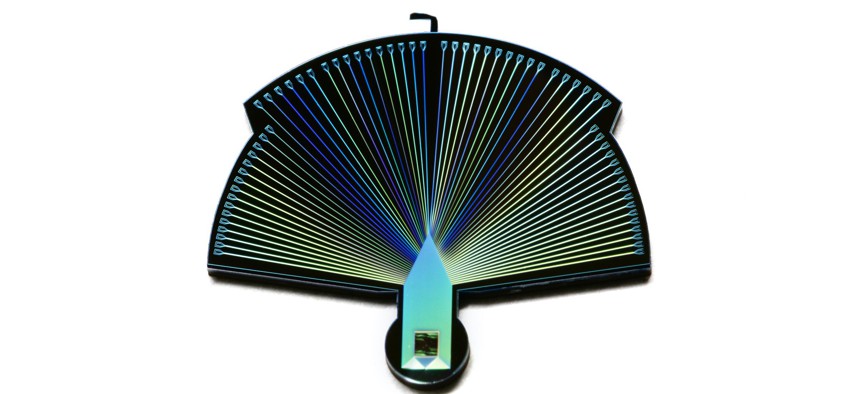House committee unanimously approves quantum reauthorization bill

This NASA-developed detector the size of a dime could help form a global quantum communications network, facilitating the transfer of data between quantum computers that are separated by hundreds of miles. A House committee is trying to pass a bill to support federally funded quantum research for the next five years. Photo courtesy NASA
The reauthorization of 2018’s landmark quantum information sciences legislation is set to move to a full House vote, though a companion has not yet been introduced in the Senate.
A major piece of legislation dedicated to growing the U.S.’s domestic quantum sciences and technology industry passed a House of Representatives committee vote, with the inclusion of 19 new amendments.
The House Science, Space and Technology Committee held a final markup hearing for the legislation on Wednesday, which saw the National Quantum Initiative Act reauthorization pass unanimously out of the committee and advance towards the House floor.
The legislation "will harness the accomplishments of the Committee’s 2018 National Quantum Initiative Act to conduct breakthrough research, drive new quantum applications, bolster industry partnerships and invigorate the quantum ecosystem,” said committee Chairman Frank Lucas, R-Okla. “As China and Russia are actively making notable investments in quantum systems, we must maintain our momentum to secure our leadership position in this revolutionary field, and this bill does just that.”
The first National Quantum Initiative Act was signed into law in 2018 by former President Donald Trump. Major changes included in the bill’s reauthorization expand the research frontiers and goals provisioned by the bill. One amendment allows for the study of quantum information research and how it intersects with artificial intelligence, while another prioritizes quantum information sciences research specifically within the healthcare industry.
Another amendment added the Post Quantum Cybersecurity Standards Act to the bill text. Introduced by Reps. Jeff Jackson, D-N.C., and Claudia Tenney, R-N.Y., in September, that bill calls for stronger preparations to implement post-quantum cryptographic algorithms ahead of the onset of a fault-tolerant quantum computer.
Industry experts voiced support for the bill’s passage. Allison Schwartz, the vice president of Global Government Relations & Public Affairs for D-Wave, told Nextgov/FCW that some of the most important provisions in the reauthorization will support advancing near-term quantum technologies, namely annealers and hybrid computing models.
“Other global leaders are already using quantum to solve public-sector problems; we urge the Senate to introduce their companion language,” she said. “It is imperative that Congress acts quickly to reauthorize the NQI this year.”






